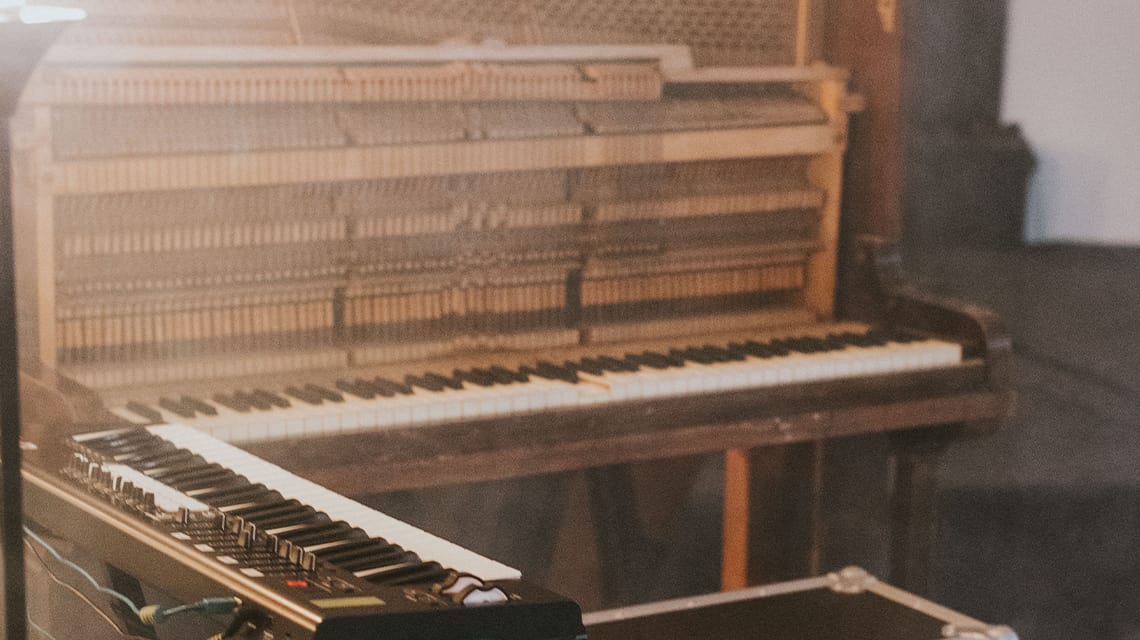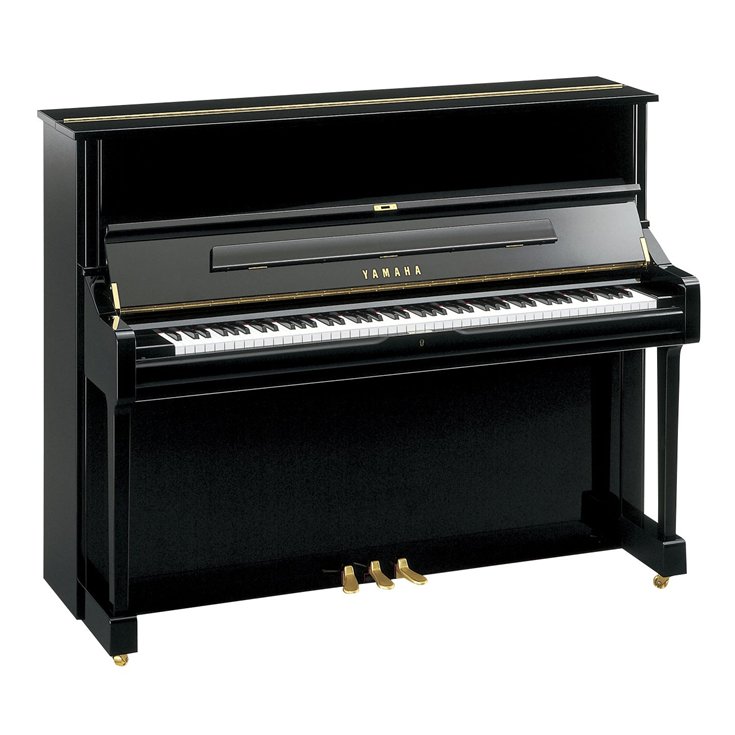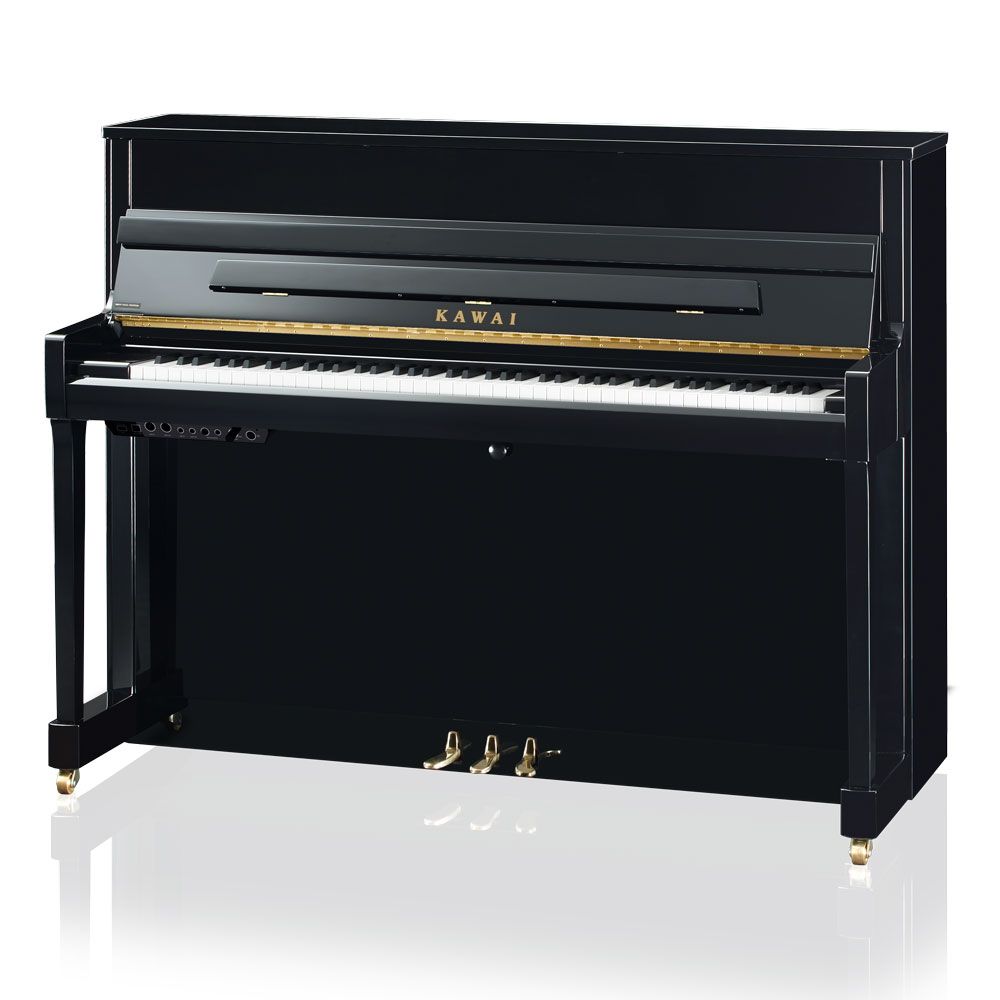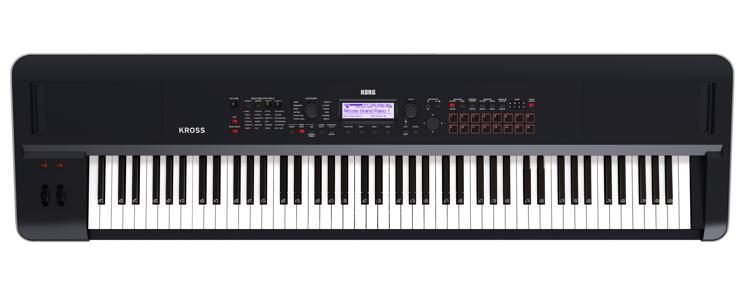Acoustic vs. Digital Pianos: The Pros and Cons
When you’re in the market for a new piano, your main options will be either acoustic or digital pianos. Most people develop a preference for either digital or acoustic pianos based on their own experiences with them. If you’re not sure which route is best for you, we’re here to sort out all the opti

When you’re in the market for a new piano, your main options will be either acoustic or digital pianos. Most people develop a preference for either digital or acoustic pianos based on their own experiences with them. If you’re not sure which route is best for you, we’re here to sort out all the options. In this blog post, we’re going to dive into the pros and cons of each type, and help you decide which kind of piano is best for you!
Acoustic Pianos
Let’s face it: it’s impossible to replace the sound and touch of an acoustic piano. One of the unique qualities of an acoustic piano is that when you play a note, there is a physical reaction within the piano. The vibrations of the strings create harmonic overtones that sound simultaneously, creating a beautifully full and rich sound. It may be subtle, but when it’s lacking, you’ll be scratching your head as to why your piano sounds a little dull.

Pros: Acoustic Pianos
- Acoustic pianos have a beautiful rich sound and authentic touch.
Playing a well-maintained, high-quality acoustic piano is wonderfully fulfilling and something that can’t be replicated digitally. Spending a lot of time at an acoustic piano helps you appreciate the authenticity of its sound.
- Acoustic pianos respond to how you play them.
An acoustic piano has thousands of moving parts inside of it, and the sound you get from a piano is a reaction from those moving parts. This means that you have a considerable amount of control over what shape the sound will take. How you choreograph your hands and how you approach the keys will create innumerable sounds and effects that add to the beauty and depth of your music.
- Acoustic pianos look nice in your home.
Most pianos are beautiful pieces of furniture that add a charming aesthetic to your space. Need some tips for decorating? Check out our article 10 Ways to Decorate Around Your Piano.
- The sound of an acoustic piano carries naturally.
An acoustic piano can be easier to work with when blending sounds with vocalists and other instrumentalists. Their sound tends to be well balanced and carries well in large and small spaces.

Cons: Acoustic Pianos
- Acoustic pianos require maintenance.
Many piano owners don’t really consider this a “con” because it just comes along with owning a piano. But, pianos do require ongoing maintenance and care. You should expect to tune your piano at least two times a year. If any issues arise with your piano, you’ll need to have a piano technician come to do repairs. Maintaining a piano requires a financial investment and understanding that if something on your piano breaks, it may make your piano challenging to play until it is repaired.
- Acoustic pianos generally do not improve with time.
Unfortunately, pianos are not instruments that age well. The life span of a piano is approximately 60 years. As pianos get older, they lose their ability to hold the correct pitch, and things may start break that are not worth repairing. Keep this in mind, especially if you are considering buying a used acoustic piano.
- Acoustic pianos are affected by environmental changes.
Pianos need to be kept in a stable environment. Temperature swings, changes in humidity, and exposure to moisture can negatively affect your instrument. When you own an acoustic piano, you’ll want to be mindful of where it is kept to ensure that it stays in working order and sounds its best. Check out our article Piano Tuning 101 to learn how to keep your piano pitch perfect.

Digital Pianos
Digital pianos have come a long way in recent years. They are an excellent substitute for an acoustic piano. With a digital piano, you gain several convenience factors and have much less maintenance to worry about.

Pros: Digital Pianos
- Digital pianos are always in tune and require little maintenance.
Unlike acoustic pianos, digital pianos require almost no maintenance. They are always in tune, and once you turn them on, they’re ready to go!
- Digital pianos are more affordable.
If you’re looking for a new piano, a digital piano will be a significantly cheaper option. Most high-quality digital pianos will be around $1,000, though there are many that can get up to $5,000 and beyond. However, you should think of your piano as an investment. It’s worth it to have something that sounds and feels good!
- You can adjust the volume on digital pianos, as well as use headphones for private practice.
A huge perk of using a digital piano is the ability to plug in headphones and to control the volume. This is ideal in an apartment setting or in homes where other people’s sleep and work schedules need to be considered.
- Digital pianos include a variety of fun features.
Digital pianos often come with unique features, such as recording options, different instrumental sounds, built in accompaniments to play along with, and more. They can also be used easily with any recording software by simply plugging in and playing. Acoustic pianos, on the other hand, require several microphones and a recording studio. These features open up many doors for ways creatively work with your music. They’re fun and engaging and can take your playing to the next level.
- Digital pianos take up less space.
While the keyboard and keys on a digital piano are the same standardized size as an acoustic piano, the instrument itself does not have the internal structure of an acoustic piano. Therefore, digital pianos will take up far less space, making them convenient for small apartments or practice rooms. They’re also easy to transport, whereas acoustic pianos require an entire entourage of movers.

Cons: Digital Pianos
- Digital pianos can be difficult to repair.
Even though a digital piano does not require regular tuning and maintenance, like all technological things, they can surely still break or stop working. It can be difficult to find a qualified technician to work on a digital piano, and in many cases, you may have to replace the entire thing.
- Digital pianos often sound artificial.
Technology has come a long way in recent years, and new digital pianos can sound and feel remarkably similar to an acoustic piano. However, older models or lower quality digital pianos can have inferior sound quality. Some people describe it as sounding “tinny” or computerized. If you don’t enjoy the sound coming from your piano, it will be hard to stay motivated to play it.
- Technology is always changing.
Since technology constantly evolves, features on digital pianos can easily become obsolete. For example, digital pianos from just 10-15 years ago have floppy drives on them. If you wanted to record music on an older digital piano, you’d probably have a hard time transferring your music to a more current device.
- Digital pianos may not build finger strength.
Newer digital pianos have learned to incorporate “weighted keys” to mimic an acoustic piano. However, older models did not use weighted keys, and many still aren’t weighted enough. If you’re a learning pianist, this can cause many issues for your finger strength and dexterity. If you decide to go with a digital piano, make sure to test out the weight of the keys before your purchase.

Yamaha P-45 88-Key Digital Piano
Which should you own?
Deciding between an acoustic and digital piano will mostly depend on your own preferences. Consider your space, the other people you live with, and how you plan on using it. Try out many different pianos before you settle on one. Digital pianos are appealing because they are convenient and low maintenance, but acoustic pianos will add beauty and depth to your music that you will likely miss out on when playing a digital piano.
Choose an acoustic if:
- You love playing classical music or would like to learn to play classical music.
- You focus heavily on your technique and are looking for a sound that will respond to subtleties in your playing.
- You appreciate the uniqueness of the feel and sound of an acoustic piano.
- You’re interested in the visual aesthetic an acoustic piano will bring to your space.
Choose a digital if:
- You’re interested in recording your music.
- You would like to create music by combining your piano skills with technology, such as instrumental voicings, accompaniment loops, and other features.
- You’re looking for a low-maintenance instrument.
- You need the convenience of playing with headphones or lowering the volume.
We hope you now have a little clarity about which type of piano will work best for you! Remember to spend a reasonable amount of time testing out your piano before you buy it, regardless of whether it’s an acoustic or digital piano. It will be a long term investment, so it’s essential to be happy with the sound and feel, because you’ll be stuck with it! If you’re looking to buy a used piano, make sure to check out our article How to Buy a Used Piano: 6 Things You Should Know.
And once you’ve finally found your dream piano, don’t forget to grab your favorite piano sheet music arrangements at musicnotes.com!

